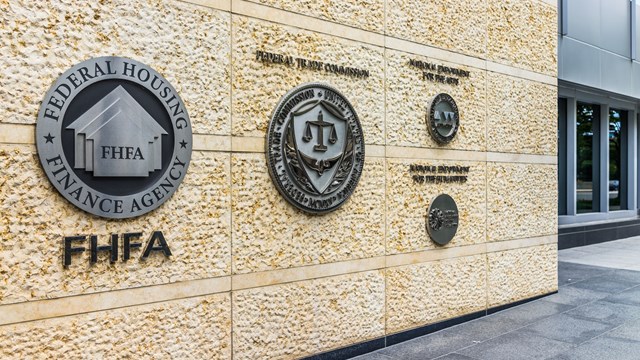Transitions are subjective; a prospective homeowner puts a bid on a condo unit or townhouse, navigates the normal channels, and upon receiving approval looks forward to settling into his or her new home. There's a lot to do before that can happen, though: packing, moving, changing addresses, getting used to the new commute, meeting the new neighbors, and finally becoming a link in an association's chain.
Despite all that, a new owner's transition is small potatoes compared to another reality—that of the developer. You know; the "guy" or corporation that made the new home and community possible. He has to move too, and it's not just equipment and construction materials—he has to sell every unit in the development, and eventually relinquish control of the whole thing to the board of directors.
At this point, the transition from developer control to association control begins. While most transitions run smoothly, it's important to understand the laws that govern the process and what the developer is responsible for before a new board is elected to govern the association's current and future affairs.
According to the New Jersey Department of Community Affairs (DCA), developers are required to register with the DCA and file an application for registration containing a variety of exhibits concerning the legal status of the property and condition of title and financial information, as well as brochures used for advertising and promotional purposes. Developers must apply and become registered before offering units for sale.
The Developing Deal
Once a community is completely "built out,"—meaning all units are on the market for sale—the developer must construct a governing board for the association. This is a gradual process which is aimed at properly equipping new board members with the know-how to effectively manage a board. This responsibility falls to the developer, and is written into the contractual law, explains Wendell Smith, senior partner at the Woodbridge-based Greenbaum Rowe Smith Ravin Davis and Himmel LLP. "The developers have to formulate governing documents—bylaws and regulations—before any unit can be offered for sale," says Smith.
To a skeptical eye, this may not seem practical, since the developer usually has experience—as well as a legal and accounting team—behind him, while homeowners have limited knowledge of the process. However, most developers who have been through the transition process understand that adhering to their word ultimately saves them time and money down the line. "This is practical, and it's the way it's done, and it works," says Smith, who co-wrote the book Condominium and Community Association Law—a Practical Guide to Condominium and Other Common Interest Communities.
Bringing In the Board
From the onset of a residential construction project, the developer and his appointed candidates act as the board until 25 percent of the units are sold. At this point the first of three elections takes place (this transition is outlined in the New Jersey Condominium Act of 1979) and the five-member governing board will consist of one association member. At 50 percent sold, another election is held and the number of association members increases to two, and at 75 percent sold, yet another election is held and the board is then comprised of four association members and one member that is either the developer or an appointee of the developer. It's important to note that most contracts have a clause that states that the developer will hold at least one seat on the board until either 75 percent of units are sold or a set number of years pass. "The developer will often retain one seat until the last unit is sold—this is optional, however," says Smith.
A developer remains a part of the process not only to assure his or her financial obligations are satisfied but also to establish and encourage communication among board members, managers, and residents. Like many processes, transition of power takes time and gets increasingly more difficult—especially for wet-behind-the-ears board members. "Different developers handle it differently but with the developer—or appointee—on the board, it forces the lines of communication," says Michael Pesce, president of the Clifton-based Community Services Group management company.
Like most contractual agreements, every transition plan is drafted differently. However, some developers will have the contract drafted in such a way that it's to their ultimate benefit. That's why the first elected board member from the community should have some prior experience, or should seek legal counsel to make informed decisions on behalf of him or herself and neighbors. "If you look at sets of documents, almost always there are provisions protecting the developer," says Pesce.
Smith explains that with good market conditions, some developers sell up to 75 percent of the units between six months and five years, while Pesce says that some developers don't realize this percentage of sales until seven to 10 years after build-out.
"It all depends on the strength of the market," says Pesce. "On one hand, a couple hundred units could sell out in a year, where somewhere else it could take forever to sell 200 units. When the market is bad, [the developers] can't even give units away," he adds.
Smith notes that a retirement community - with residents aged 55 and older—that has 1,000 units could take as long as 10 years before all sales are final. Location also plays a role. For example, a community located on the Hudson River will sell faster than a community located in Middlesex County or the farther reaches of Warren County.
Smith also points out that financial accounting and transfer of responsibilities normally occurs when the unit owners assume majority control at 75 percent. However, he suggests that consideration be given to permitting a unit owner/board member to serve as treasurer prior to transfer—having one of their own in charge of the books can help assuage association members' concerns about how association funds are being handled.
Home Owning Issues
For the most part, developers will stay onboard for as long as possible to give general guidance and to assure that their interests are protected. However, many developers will yield to a consensus of the homeowners when it comes to issues like snow plowing, landscaping and maintenance concerns. This allows the developer to slowly disengage from the day-to-day management of the association while allowing new board members to get their hands dirty, as it were, in the governing process. Dealing with landscape companies and snow removal companies can be viewed as a training ground for the bigger issues that will eventually surface, such as negotiating contract bids and hashing out operating budgets.
"The developer who sits on the board is supposed to wear different hats," says Pesce. "They should act more like a board member than a developer, and should leave the day-to-day quality of life issues to the homeowners."
Although the developer will usually take a hands-off approach to day-to-day management issues, this doesn't mean that he or she won't contend certain contractual agreements if they are deemed either too expensive or the company in question can't adequately complete the job. In cases like these, Steve Dahl, vice president and chief legal council for K. Hovanian Companies, says a developer has the right to veto. "There is a built-in veto [in the master deed], but I can't recall a developer ever exercising that veto right." He continues, "Our responsibility is to build homes correctly and we focus on quality. The documents—the master deed, et cetera—are workable and make sense from an association's perspective." A developer maintains other rights as well, says Dahl. "The developer has the ability to make changes in the site plan to enhance marketability of the site," he says.
Sometimes associations cry foul years after the developer has legally left the association, for minor issues like shrubs and trees that subsequently died. To this, Dahl says, "We're not the association's landlords—that's something they have to understand."
Changing of the Guard
Once the transition of power is made over to the governing board comprised of a majority of homeowners, the reality of what the developer originally promised in terms of amenities, landscaping, and maintenance and the reality of the situation are sometimes at odds. This is when the governing board must hire an attorney, an engineer, and an accountant to assure what was promised comes to fruition. "The first thing a unit-controlled board must do is hire an independent attorney, engineer and accountant," says Smith. "They will need a team of professionals to review what the developer has done and what was promised."
While this is common practice, it is beneficial to bring aboard outside experts before the 75 percent sold mark is reached because it allows for a better system of checks and balances. "Many associations bring on an attorney in advance of the 75 percent threshold," says Pesce, and adds, "I'm a big believer in bringing on counsel sooner than later."
What happens if there are problems? That's where the attorneys come into play, says Smith. However, it's in the best interest of an association to try to mediate any concerns so as not to feed dollars that could be earmarked for maintenance into legal fees. For example, if there are cracks in a sidewalk, the association's engineer should determine if it is cosmetic or structural. "Litigation is the worst thing to happen, because money goes to legal fees; if you think about it, you can fix a lot of sidewalks with that money," says Smith.
Dahl agrees. "Things can get a little testy at times, but most often we work out the differences. Litigation doesn't make sense from either perspective because you never get your money back."
In Closing
As outlined in Smith's book, there has been case law involving transition. In the case of Poblette v. Towne of Smithville, NJ,unit owners in a planned unit development suffered flood damage following a storm and sued the association governing it for its failure to properly maintain a storm water basin. The association argued that it did not have maintenance responsibility because the easement necessary to carry it out—as well as the responsibility itself—had never been transferred from the developer to the association because the developer went bankrupt before the transition took place. The court held that under those circumstances, the transition had occurred as a matter of law.
Most often, however, such issues are mediated before going to court, which saves time and money. Those familiar with the transition process say it's common knowledge that associations often have what Smith calls a "laundry list" of grievances with the departing developer—although many of these problems can be dealt with amicably, providing there are good relations between the board and the developer. That positive relationship should be cemented during the transition process, during which the association should figure on spending roughly six months resolving any outstanding issues, says Smith, adding "there's always a lot of back-and-forth."
There is good reason why this process is called "transition of power" because "power" wielded properly makes for a vibrant community. Often times, board members can't see the forest for the trees and spin their wheels on issues that are easily resolved through proper organization, research and communication.
The bottom line: be very prepared. "Transition doesn't happen overnight, and it requires patience because there will be tense times," says Pesce. "An association has to make sure they hire the best professionals to help them through the process, and the homeowners have to be educated as to what they can reasonably expect. Otherwise, they will get very frustrated—and that doesn't help anyone," he adds.
W.B. King is a freelance writer and a frequent contributor to The New Jersey Cooperator.







2 Comments
Leave a Comment